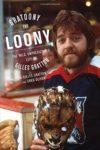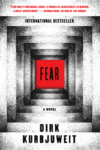|
|
Bookish Linkage
Nonbookish Linkage
Don’t you know that you are free
Well at least in your mind if you want to be
Sly and the Family Stone, Title cut, Stand
Bulletin Board
- About the only thing that makes winter bearable is back! The NHL season began Wednesday and tonight is the Stampede‘s home opener. Added bonus: watching hockey is exercise
Interesting Reading in the Interweb Tubez
- These Are Not Acts of God (“Our politicians mourn, our media serves the familiar narratives, and we end the day in the same place where we started it, bewildered by reducible catastrophes but unwilling to do anything about it.”)
- What Science Says About ‘Thoughts and Prayers’ (“Murphy’s central concern with offering ‘thoughts and prayers’ is not that doing so is ineffective at solving health issues, but rather that prayer is offered in place of actual policy solutions.”)
- The Real Value of Money (“Materialism, by and large, is a psychological trap. No matter how much you own, how much you buy, how much you earn, the disease of more never goes away.”)
Blog Headlines of the Week (Las Vegas edition)
Bookish Linkage
Nonbookish Linkage
One of course wonders why in the president’s view a black man protesting racial injustice by kneeling during the anthem is a ‘son of a bitch,’ while whites marching along Nazis and the Klan to protest the removal of a statue of a Confederate general is a, quote, ‘very fine person[.]'”
Jake Tapper, September 25
Sports are replete with stereotypes. Yet few are probably as old and ingrained as that ice hockey goaltenders are quirky weird crazy. Even Hall of Fame goaltender Bernie Parent said, “You don’t have to be crazy to be a goalie. But it helps!” And then there’s the goaltenders who embody the stereotype, such as Gilles Gratton, a goalie who earned the moniker “Gratoony the Loony” (to be distinguished from “loonie,” the $1 Canadian coin).
Even though Gratton only played in 47 NHL games in the 1975-76 and 1976-77 seasons, he achieved somewhat legendary status. His autobiography Gratoony the Loony: The Wild, Unpredictable Life of Gilles Gratton, co-written with Greg Oliver, shows how his quirks and actions created the image of the crazy goaltender. But it also tells the story of a French-Canadian boy growing up playing hockey and reaching the big stage while believing there was more to life than a hockey rink.
 Gratton spent three seasons in the World Hockey Association, playing in its second All-Star Game, before moving to the NHL. He asserts that he didn’t want to play hockey, “it just seemed that destiny pushed me into it.” Similarly, he says his brother Norm, who would play 201 games with four NHL teams, would rather hunt than play outdoor hockey when they were growing up. Gratton spent three seasons in the World Hockey Association, playing in its second All-Star Game, before moving to the NHL. He asserts that he didn’t want to play hockey, “it just seemed that destiny pushed me into it.” Similarly, he says his brother Norm, who would play 201 games with four NHL teams, would rather hunt than play outdoor hockey when they were growing up.
The introduction to Gratoony the Loony deals with an event near the end of his career that drew extensive attention. While goalies had fiberglass masks, they were not that far removed from the type made iconic in Friday the 13th. At a home game at Madison Square Garden on January 30, 1977, Gratton came on the ice wearing a mask painted as a snarling lion. (It’s probably apropos that he chose a lion because his astrological sign is Leo.) The mask was so striking that, according to Gratton, the referees and players on the ice came down to look at it. He believes the mask “has come to define me, because most of the rest of my career was just a series of fuck-ups.”
Gratton doesn’t limit his focus to the quirks and antics that he’s remembered for. Instead, Gratoony the Loony is more autobiographical than many sports memoirs. He writes of growing up with parents who were “emotionally absent,” allowing him to do whatever he wanted. He says he struggled with “despair over the meaninglessness of life.” He dropped out of high school after only three days. Before his last NHL season, Gratton no longer wanted to play hockey; he wanted to “meditate, go to ashrams, do my spiritual stuff and uncover life’s secrets.” In fact, after retiring at age 24, Gratton spent several years exploring Transcendental Meditation and yoga, in hopes of becoming “an enlightened being.” Ultimately, though, I think readers would have been better served by a deeper exploration of the effects of how he and his brother (who drank himself to death in 2010) were raised and a more abbreviated discussion of his life after retiring.
Make no mistake. This is a book about hockey. There’s plenty of narrative of Gratton’s years playing hockey, especially professional hockey. In fact, the book at times has the feel of a series of war stories. Perhaps because of that, brief, oral history-like accounts from a wide variety of people are interspersed throughout the book. To me, the inserts tended to break the flow of the book and a number didn’t seem that relevant to the subject at hand. But those interested in the Gratoony the Loony reputation also get what they came for. Among other things, Grattong tells of:

- His mood and thinking being affected by his horoscope and why would you play a goalie who wasn’t in the right mood to perform?
- While playing for Toronto’s WHA team, taking several laps around the practice rink wearing only his mask and skates, ending with a pirouette at center ice.
- When interviewed at center ice in San Diego after being named first star of the game, Gratton told the crowd, “You have a nice city here. It’s too bad you don’t have a good hockey team.”
- After getting hit in the ribs by a puck, telling the doctor the reason it hurt so much was because he was stabbed in the same place by a Spaniard in a prior life.
Plainly, Gratton reinforced the hockey goalie stereotype. He still may be doing so. Gratoony the Loony also tells of his post-hockey astral projection and that he’s currently living two distinct timelines. In the past, he’s lived as a 12th century sailor, a 14th century Indian “hobo,” a 17th century Spanish landowner, an 18th century Spanish priest and a 19th century British surgeon. All in all, to paraphrase Daniel Tosh, it’s not a stereotype if it’s true.
My old enemy had come back to haunt me, and I entered a state where winning and losing did not matter. Nothing seemed important to me
Gilles Gratton, Gratoony the Loony
Bulletin Board
- Weekend Edition is plus one day because this weekend I became plus one son-in-law (the first)
Interesting Reading in the Interweb Tubez
Blog Headline of the Week
The Psychology of Men Who Put Their Dicks in Tiny Objects
Bookish Linkage
Nonbookish Linkage
Life flies by in seconds
You’re not a baby Gracie, you’re my friend
You’ll be a lady soon but until then
You gotta do what I say
Ben Folds, “Gracie” Songs for Silverman
Thousands of pages and hours have been consumed debating the purposes of literature. Many, myself included, would agree with Nobel laureate Mario Vargas Llosa, who says it “enable[s] us to explore and to understand more fully the common human abyss.” And foreign authors like Vargas Llosa enable Americans to see the extent to which elements of the human condition are shared regardless of geography or culture.
Dirk Kurbjuweit’s novel Fear is a sterling example. It explores family disarray and moral codes. Despite the fact Kurbjuweit tells us most of the end of the story in the second chapter, there’s a sense of existential trepidation throughout.
The book is narrated by Randolph Tiefenthaler, a 45-year-old Berlin architect. He, his wife and two children live in the ground floor of a late 19th century home with flats in the basement, second floor and attic. When they meet Dieter Tiberius, the man who leases the basement flat, things seem normal. Unfortunately, Tiberius later makes suggestive comments to Tiefenthaler’s wife, Rebecca, and writes her love letters. His bizarre actions escalate. Soon he is writing notes and letters accusing the couple of abusing and molesting their children. (The plot is based upon Kurbjuweit’s own experiences more than a decade ago.)
 When Tiefenthaler goes to the police and lawyers trying to stop Tiberius, he finds there is nothing to be done since Tiberius hasn’t committed a crime. Tiefenthaler even offers to buy the basement flat from its owner, an offer that is rejected. Not only is Tiefenthaler frustrated, he fears someone may believe the allegations. Combined with the thought that he is failing to protect his family, Tiefenthaler’s self-loathing grows. When Tiefenthaler goes to the police and lawyers trying to stop Tiberius, he finds there is nothing to be done since Tiberius hasn’t committed a crime. Tiefenthaler even offers to buy the basement flat from its owner, an offer that is rejected. Not only is Tiefenthaler frustrated, he fears someone may believe the allegations. Combined with the thought that he is failing to protect his family, Tiefenthaler’s self-loathing grows.
Tiefenthaler’s thoughts make clear he suffers an inordinate amount of angst. It’s apparent that much of it is tied up in the rocky relationship he had with his father growing up. Tiefenthaler’s father is infatuated with pistols; he has around 30 guns in their home. Each Saturday, his father would drive them to a shooting range for the two of them to shoot at targets. Tiefenthaler, though, had a strong aversion to his father’s passion and just before his 10th birthday refuses to go to the practice range any more. His younger sister eventually takes his place and the father-son relationship never improves.
Tiefenthaler can’t put his finger on the fear underlying his dislike of shooting with this father, just as he has a hard time understanding his dread in general. His relationship with Rebecca becomes strained, even to the point where Tiefenthaler begins to wonder if maybe Tiberius is telling the truth. “‘I trust you not to abuse our children’ is something you should have have to say,” he thinks one night as they sit in their living room.
Kurbjuweit’s pacing as Tiefenthaler’s turmoil increases not only heightens the sense of pressure but helps the reader grasp it. And while the reader knows how the story ends, the devil is in the details. Kurbjuweit, deputy editor of Der Spiegel, has won several awards for his reporting and is the author of several nonfiction works and novels. Translated by Imogen Taylor, Fear is his first book to be translated into English. It is an auspicious beginning.
The upwardly mobile are particularly afraid. We are afraid of losing what we have attained, because it is not secure, neither morally nor financially.
Dirk Kurbjuweit, Fear
|
Disclaimer 
Additionally, some links on this blog go to Amazon.com. As an Amazon Associate I earn from qualifying purchases. There is no additional cost to you. Contact me You can e-mail me at prairieprogressive at gmaildotcom.
|










